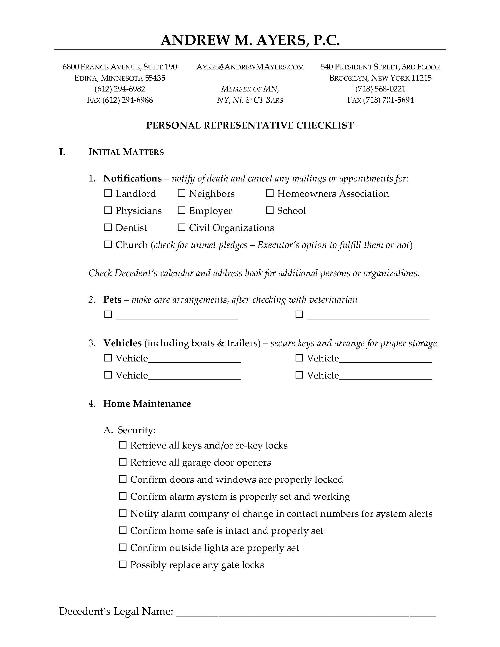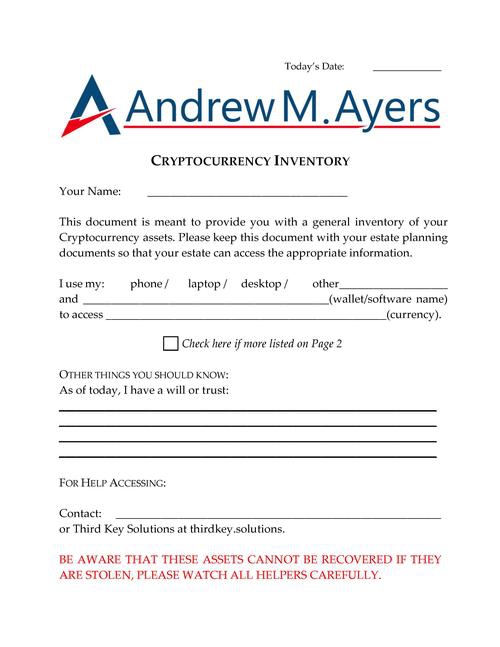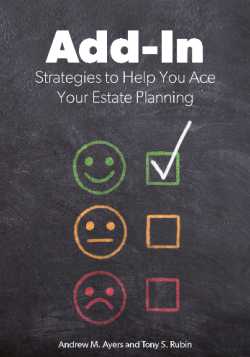 If you've had any connection to the estate planning world, you've likely heard the word "Probate" and have wondered what it means and why you need to know about it. It's a term that often comes up in the context of dealing with the affairs of a deceased person. It's a legal process that many of us will encounter, yet it remains shrouded in mystery for those who haven’t navigated its intricacies.
If you've had any connection to the estate planning world, you've likely heard the word "Probate" and have wondered what it means and why you need to know about it. It's a term that often comes up in the context of dealing with the affairs of a deceased person. It's a legal process that many of us will encounter, yet it remains shrouded in mystery for those who haven’t navigated its intricacies.
Most commonly, when I have an initial meeting with clients, they are confused about Probate and what it means for their estate plan. If they've had family members die in the past where they've been involved with the post-death distribution of assets, they likely have some familiarity with it. Often, their experience was a negative one (the court process took too long, the lawyer fees cost too much) and they are seeking to avoid that type of experience for their loved ones after they are gone.
Depending upon the type of estate plan you are putting together, you may be seeking to avoid the court process in its entirety, a common goal, or at least minimize the amount of interaction your family may need to have with the court. In some cases, working with your financial advisor and accountant, you can actually be sure to set up your financial legacy so that even with a significant amount of money, your family is not even required to go to the courthouse.
What is Probate?
At its core, probate is the legal process through which a deceased person's will is validated by a court, and their assets are distributed according to the will’s instructions. If there is no will, probate is still necessary to distribute the assets according to state laws, which typically favor spouses, children, and other close relatives.
Probate serves multiple purposes: it confirms the validity of the will, ensures that the deceased’s debts and taxes are paid, and oversees the distribution of the remainder of the estate to the rightful heirs. This process is overseen by a probate court and typically involves an executor or personal representative (if there was a will) or an administrator (if there was no will).
The Steps of Probate
The probate process varies significantly from one state to another, but it generally involves several key steps:
-
Filing the Will and Petition at Probate Court: To initiate probate, the executor named in the will, or a close relative if there is no will, must file the will and a petition for probate with the probate court. This step officially starts the process.
-
Notifying Heirs and Creditors: The court requires that heirs, beneficiaries, and known creditors are notified of the probate. This includes publishing a notice in local newspapers to alert potential creditors whom the executor might not be aware of.
-
Inventorying the Deceased’s Assets: The executor or administrator must compile a comprehensive list of the deceased’s assets. This includes everything from bank accounts, real estate, stocks, to personal belongings. These assets may need to be appraised to determine their value.
-
Paying Debts and Taxes: Before any distribution to heirs, all outstanding debts and taxes must be paid from the estate’s assets. This might involve selling assets to generate sufficient cash.
-
Distributing the Remaining Assets: Once debts and taxes are settled, the remaining assets are distributed to the heirs according to the will or state law.
-
Closing the Estate: The final step involves filing a final account with the probate court and obtaining approval to distribute whatever remains in the estate.
How Long Does Probate Take?
The duration of probate can vary widely. A straightforward estate with no disputes might be settled within a few months, while more complex cases can take years. Factors that can extend the probate process include the size of the estate, the complexity of the assets, disputes among heirs or creditors, and legal challenges to the will. Even where there are no disputes, the opening of a probate serves as a notice to creditors of the deceased person and under the law, the court has to provide them with time to notify the estate that there are outstanding liabilities that need to be paid by the estate.
The length of the court matter will also depend on what state you are in and whether they have expedited processes that you can opt into. For example, in Minnesota, the courts allow for "Informal Probate" ~ a streamlined process that allows for estates with a valid will to be administered in an expedited fashion. However, if your court does not have any expedited procedures, your probate may be stuck in a general queue of cases and can take some significant time.
Can I Avoid Probate?
Given the potential complexity and cost of probate, many people plan their estates in ways that bypass the process. Here are a few common strategies:
- Living Trusts: Placing your assets in a living trust can avoid probate entirely because the trust technically owns the assets and can be transferred to beneficiaries without court involvement.
- Joint Ownership: Assets owned jointly with a right of survivorship automatically pass to the co-owner without going through probate.
- Payable-on-Death and Transfer-on-Death Accounts: These designations on bank accounts and real estate allow these assets to be transferred directly to a designated beneficiary when the owner dies.
There can be other methods to avoid probate in your jurisdiction, which is why it's important to work with a financial advisor and an attorney to set up your estate in the manner that you want to protect your legacy for your family.
Need Help with Your Estate Plan?
If you don't already have an estate plan, or if you have one that needs to be updated to avoid unnecessary probate proceedings, let's schedule a Legal Strategy Session online or by calling my Edina, Minnesota office at (612) 294-6982 or my New York City office at (646) 847-3560. My office will be happy to find a convenient time for us to have a phone call to review the best options and next steps for you to work with an estate planning attorney to get your estate plan prepared.






